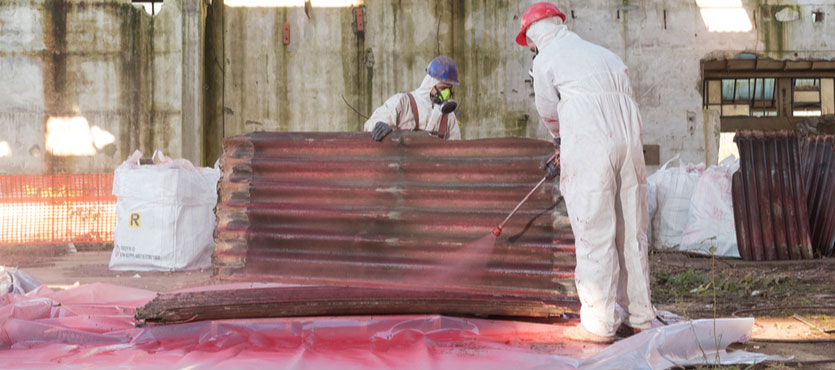Military contractors in places like Iraq continue to face hazards long after a particular region has been pacified. As rebuilding and reconstruction efforts commence, the risk of injury actually increases. Not only to these individuals face dangers from potential suicide bombers and gangs of militants, they also must deal with the risk of occupational diseases.
These injuries arise over the course of more than one work shift, and sometimes, they take years to become apparent. The same time deadlines apply in Defense Base Act occupational disease cases as they do in trauma injuries, so it is important for victims to report symptoms sooner rather than later. These reports can always be withdrawn or modified later. Furthermore, in most cases, full DBA coverage is available even if the victim had a pre-existing condition or if the occupational disease also has a non-occupational cause.
Hearing Loss
Repeated exposure to sounds as high as 85 decibels, which is basically a chamber orchestra in a smallish auditorium, can cause permanent hearing loss. One-time exposure to sudden loud noises can also cause hearing loss, ranging from slight impairment to near-total deafness.
Corrective medical devices, mostly hearing aids, address most types of hearing loss, even if it is rather extreme. The DBA pays for all such devices, in addition to the required doctor visits as well as a sizeable portion of any pay that the victim loses because of the hearing loss.
Asbestosis
When terrorists destroy buildings and other structures, asbestos almost inevitably leaks into the atmosphere. This mineral once widely used in construction projects because of its low cost and strong fireproofing ability. For example, the World Trade Center towers contained about 10 million pounds of asbestos. One fiber is enough to cause an asbestos illness, and about 20,000 fibers can fit between Abraham Lincoln’s mouth and nose on a penny.
Lung cancer survival rates have increased dramatically since the 1990s, and so has the cost of treatment. DBA benefits are critical in these cases. Victims get the best available treatment, as opposed to the treatment they can best afford.
Repetitive Stress Injury
This occupational disease can strike anyone from office workers to warehouse workers. Office workers often develop carpal tunnel syndrome, a painful condition that involves a pinched nerve in the narrow carpal tunnel region of the wrist. People who do lots of loading and unloading, such as the longshoremen on Diego Garcia, often develop chronic pain in their backs, knees, and other parts of their bodies. These injuries, which are also called Musculoskeletal Disorders (MSDs) are the largest single category of workplace injuries in the United States, accounting for about a third of workers’ compensation claims.
These types of injuries usually only get better after prolonged rest and a series of injections or a regimen of medication. Fortunately, DBA benefits include both lost wages, so victims can get the rest they need without worrying about bills, and medical expenses, so victims get the help they need as well.
Respiratory Disease
These injuries are especially common among contractors who served in parts of Iraq and Afghanistan near burn pits. Contrary to military protocol, commanders at many military installations ordered troops or contractors to dig a large open pit, dump all the base’s refuse in this trench, douse everything inside the pit with jet fuel, and set the contents ablaze. As a result, many contractors developed rare and serious breathing problems.
In many cases, these issues are treatable with aggressive surgery and therapy. These items are not cheap, and so the benefits available under the Defense Base Act may literally be a lifeline for families who have nowhere else to turn.
Hypersensitivity Pneumonitis
Over time, people who work around many kinds of organic dust that contains bacteria or mold often develop HP. Initially, victims come down with flu-like symptoms; later, the condition causes fibrosis (scar tissue in the lungs). If diagnosed early enough, the doctor will probably order the victim not to return to work and therefore not be exposed to the dust any longer. Once HP reaches the late stages it is largely incurable.
DBA benefits matter in both early and late-stage HP. The available lost wages benefits includes a difference in salary if the victim must transfer to another position, and the medical benefits pay for the available advanced procedures that can greatly enhance quality of life for people suffering from fibrosis.
Contact Dermatitis
These allergic reactions are usually not life-threatening, but they are incredibly disruptive. They are also very unpredictable, as there is very little way of knowing what substances will cause what reactions in certain individuals. The rash often is uncomfortable and makes it difficult to sleep. Furthermore, contact dermatitis often weakens the immune system and makes victims more vulnerable to other kinds of illnesses.
It is important to see a doctor at the first sign of this condition because the longer it goes untreated, the more entrenched the reaction becomes. Fortunately, victims do not need to prove fault in a Defense Base Act claim and they need not even establish that their illness was directly related to their job duties.
To get the benefits you need, contact Barnett, Lerner, Karsen & Frankel, P.A.

